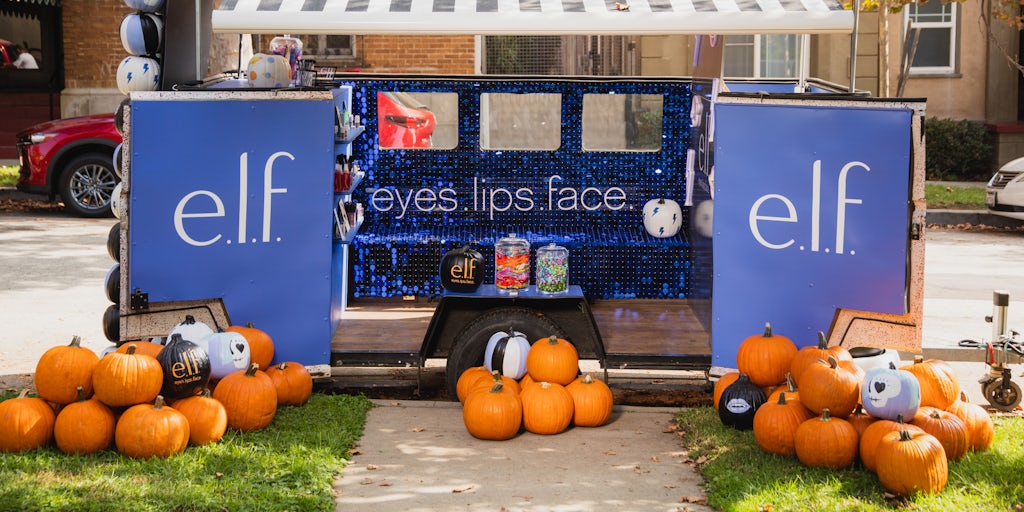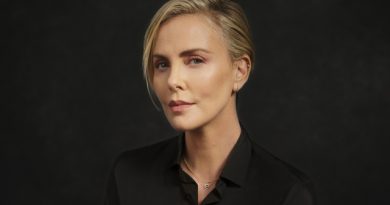The Beauty Brands Having a Very Happy Halloween | The Business of Beauty
Welcome to BoF’s Beauty Newsletter, featuring members-only analysis and the week’s top news from the front lines of the global beauty business. Subscribe here.
NEW YORK, United States — And the winner of the annual Halloween makeup wars is…Heinz.
The condiment maker challenged TikTok creators to record themselves transitioning into Halloween costumes using liberal amounts of ketchup to fake blood and gore. Thousands answered, and videos using the #HeinzHalloween hashtag have racked up 2.6 billion views as of Thursday morning.
Though Heinz’s status as influencers’ favourite makeup brand is certain to come to an end on Saturday, it wasn’t alone in turning Halloween into a marketing bonanza. Beauty brands, in particular, have latched onto the holiday as a way to spice up the endless flow of transformation videos and tutorials influencers churn out to sell products year-round.
Which brands managed to stand out in this crowded space — and how?
TikTok Is the New YouTube
This was the first Halloween where TikTok was a major force in the beauty world. Ironically, a few of the wins in the category this week featured products that weren’t makeup at all.
L’Oréal-owned Garnier, known best for its hair care and skin care products, created a TikTok “rewind” challenge around its SkinActive Micellar water product, which is used to remove makeup. Garnier tapped influencers on the platform to promote the campaign, and up to 10 users who participated using the hashtag were eligible to win $300 worth of makeup and skin care products from the brand.
Garnier created an original song specifically for the competition (music that lends itself to viral content is a key component on TikTok) and encouraged users to put the platform’s “reverse effect” for videos to use. Content tagged #MicellarRewind accrued 1.4 billion views to date, according to Tribe Dynamics (hashtags that reach the platform’s trending page typically have at least a few million views.)
“Knowing that Halloween makeup is a big part of many of our consumers’ lives, we saw the unique opportunity to take our Micellar transformations to the next level,” said Greg Hui, senior vice president of marketing for Garnier. “We felt this approach would resonate strongly with young consumers because it is an organic social behaviour around a very relevant moment.”
YouTube Is the New YouTube
E.l.f. Cosmetics, one of the first beauty brands to find success on TikTok, took an old-school approach to Halloween: it purchased display ads on YouTube that appeared atop searches for Halloween makeup. (The brand’s approach to TikTok for Halloween was narrower than some of its previous campaigns: e.l.f. partnered with micro-influencers on Halloween makeup videos, earning $17.1 million in earned media value across social media platforms from October 1 to October 25, according to Tribe Dynamics.)
“We’ve found that our consumers often turn to YouTube as an educational tool for beauty content and tutorials. So, we decided to run YouTube Discovery Ads as a way to reach consumers while they’re making this search and position our channel as the ‘go-to’ place for educational content,” said Patrick O’Keefe, vice president of integrated marketing communications for e.l.f. Beauty.
The Power of Collabs
Nyx Cosmetics often partners with makeup artists for Halloween (the brand also counts a partnership with DC Comics as a previous Halloween win).
This year, Mimi Choi, who has 1.4 million Instagram followers and is known for her trompe l’oeil creations, helped promote the brand’s “Doll Search” social media campaign, where aspiring makeup artists could submit their best “doll” makeup on Instagram. Among 3,000 entries, consumers voted to narrow down contestants, and Choi selected the final winner, a participant from Russia who created an undead-looking “fortune teller doll” with graphic skeletons painted on its face. (Unrelated to the contest, Nyx also created a “Halloween Hotline,” where consumers could call to consult with a professional makeup artist for help creating their Halloween makeup.)
https://www.instagram.com/p/CGZA4TSptrx/?igshid=68rt6jscnjxr
Makeup Revolution, which has released Halloween-themed collections in the past, created makeup palettes around characters from “The Nightmare Before Christmas,” as well as accessories like cosmetics bags and brushes, which the brand had never previously sold. The products were sold through the brand’s wholesale retail partner, Ulta.
“This was the single most impactful program we have launched with Ulta,” said Chief Executive Shawn Haynes, adding that some items sold out within 48 hours online, and the entire collection reached over 50 percent sell-through in the first week.
The scariest part of Halloween this year for some consumers, it seems, was missing out on the collaboration. “I’ve missed out?” wrote one Instagram commenter on the brand’s post featuring the collection. “You need to restock this collection ASAP!”
THIS WEEK IN BEAUTY
Bobbi Brown launches a new cosmetics brand. The beauty mogul, who left her namesake line in 2016, has started a new label, Jones Road Beauty, focused on clean ingredients. Brown said part of the inspiration for the new venture came from Phoebe Philo’s Celine.
L’Oréal sales rebound after lockdown ease. Chinese consumers and a steady stream of new product launches helped the French cosmetics giant return to revenue growth in its most recent quarterly earnings report. Despite concerns that lockdown measures would discourage makeup use, the company says its cosmetics business performed well.
Function of Beauty offers consumers new skincare products. Focusing on customisation, the five-year-old beauty brand launched three new skincare products, including a cleanser, serum and moisturizer, those which allow consumers to choose fragrance, size and formats of the products. The new products follow the brand’s foray into body care over the summer.
Costco becomes unlikely beauty partner. More prestige and trend-focused beauty brands are working with Costco to reach consumers at a time when traditional approaches to brick-and-mortar are challenged. The warehouse club’s Chief Financial Officer Richard Galanti said that “health and beauty aids” are one of the company’s stronger performing categories in a recent earnings call.


